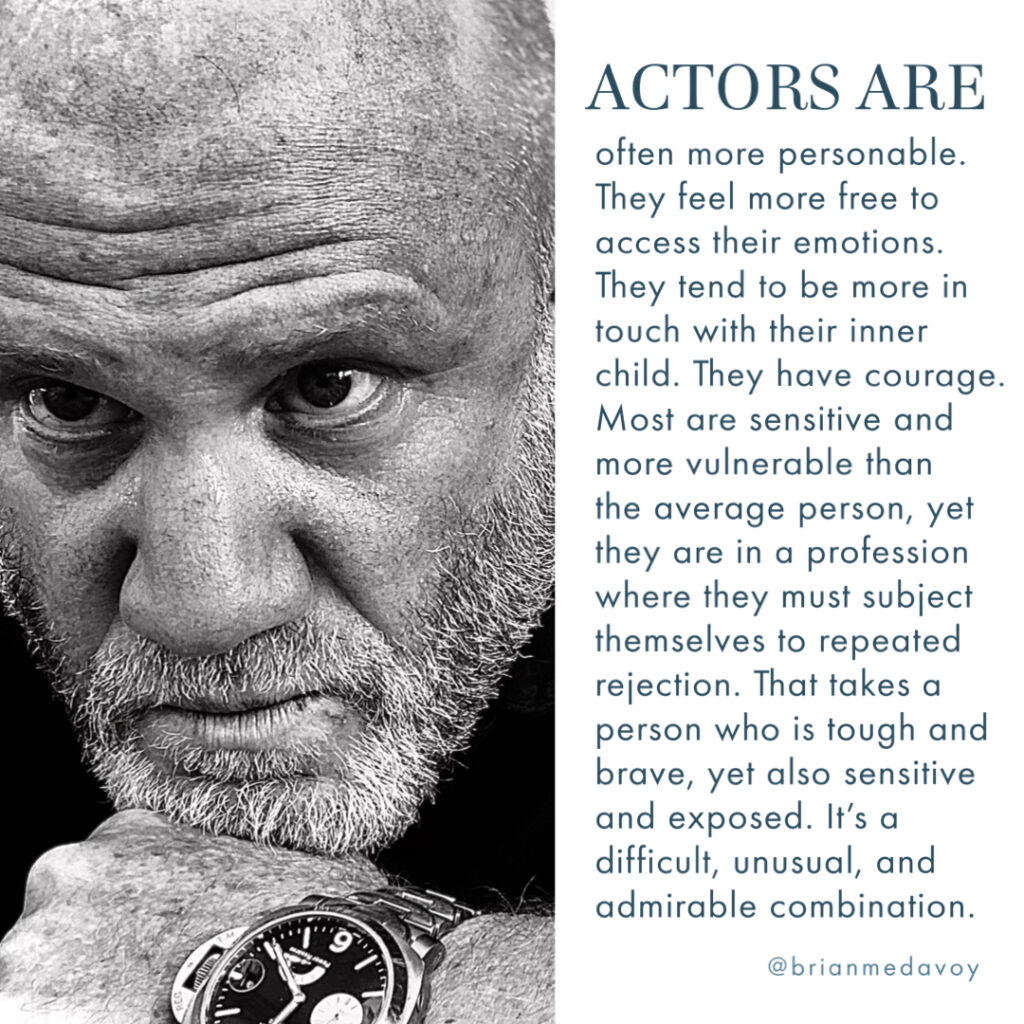No one is for everyone.
I’m what you might call a “loud” personality. I own this. I’m probably not for everyone. I don’t think anyone is really for everyone. But we live in a world — and work in an industry — that is particularly obsessed with being liked.
So, as much as we lionize people who march to the beat of their own drum or who “don’t care what people think,” I think we can all agree that’s kind of a crock of shit, right?
We’re all encouraged to live our truths, but nobody really wants to hear your truth if it isn’t copacetic with their truth. We all love a free spirit when they’re successful or mirroring ourselves, but they begin to appear weird or undesirable when they’re out of tune with what we want to see.
Of course, we care what people think — you can’t function in this world if you’re unlikeable, or you’re constantly leading with the greatest extremes of your personality. If you always leaned into your grouchiness or pretensions, let loose your most controversial opinions, or openly told people that haircut really isn’t working for them, you’re bound to become a social pariah.
It’s human nature to judge one another, to the point that we all must calibrate all day every day.
Every one of us, when we leave the safe harbor of our homes and venture into the world, spend significant energy calibrating to meet the levels of everyone we meet and the situations each day presents. We’re always calibrating so much of what we put out.
There’s a new example every single day about how intentions are skewed by miscalibration.
But one shining example that sticks with me was from a date a long time ago. We were chatting and something she said just resonated with me. I’m an emotional person and a ready crier and, sure enough, I got a little teary-eyed at the table. I’m not embarrassed by that, it was just a moment where my most authentic self came through. I didn’t think I needed to calibrate.
Evidently, I did, because she ran for the hills and I never saw her again.
But this is what I’m talking about. In a world rife with social media and activism, we’re all more open and communicative about, well, everything. We’re all in one another’s business more than ever, and yet it feels like we’re more afraid of authenticity than ever. When you share who you are and what you feel, you’re always calibrating to come across simpatico with as many people as possible. If you miscalibrate even a little, there’s one generic set of assumptions: and they’re all the worst.
Intention doesn’t really matter, and it impacts how much you can share, and how much of your authentic self you can really be.
I think we’d all get along a little better if we took each other’s intentions into account. We can’t presume to know what someone’s intentions are, but we can give each other the grace to reveal them before we jump to conclusions.
During the pandemic, I wrote a blog about dancing in the pool because I felt safer there than I had in quite some time. I was able to fully be myself. I’m aware that if others had seen me, they might think it was a little weird, or even get scared off from talking to me in the future. They’d assume my intentions were just to be a friggin’ weirdo because we often don’t want to see others be happy. We don’t want to see them be sad, either. We just want them to be “normal.”
We’re past this. Or, at least, we should be. How are we supposed to succeed if we’re calibrating all the time? Why can’t we give one another the grace of not assuming the worst intentions, and digging more into what authenticity really means?
Writing this, I’m reminded of a quote from one of my earlier blogs.
“This may all seem self-explanatory, but “self-explanatory” is another word for “repetitive” and the most important things worth knowing are the ones you repeat to yourself, either consciously or subconsciously, constantly.”
Personal mantras are a common form of calibration, and they’re absolutely valuable. But calibration is all about OUTput, and INtention is all about how we internalize what we receive from the world. They’re somewhat contradictory, but they’re also complementary in that you need both an output and an input to create an authentic self. You need to be received with grace.
That’s something we can all do for one another.



